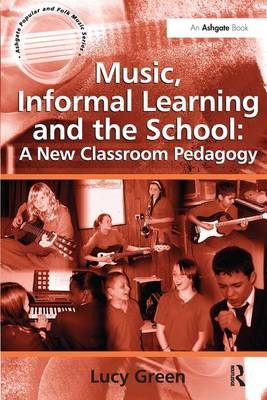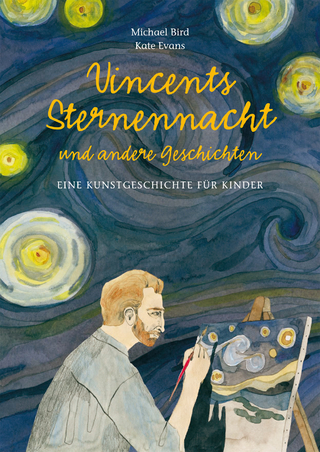
Music, Informal Learning and the School: A New Classroom Pedagogy
Seiten
2008
Routledge (Verlag)
978-0-7546-6522-9 (ISBN)
Routledge (Verlag)
978-0-7546-6522-9 (ISBN)
Reveals how the music classroom can draw upon the world of popular musicians' informal learning practices, so as to recognize and foster a range of musical skills and knowledge that have long been overlooked within music education. This book investigates how far informal learning practices are possible and desirable in a classroom context.
This pioneering book reveals how the music classroom can draw upon the world of popular musicians' informal learning practices, so as to recognize and foster a range of musical skills and knowledge that have long been overlooked within music education. It investigates how far informal learning practices are possible and desirable in a classroom context; how they can affect young teenagers' musical skill and knowledge acquisition; and how they can change the ways students listen to, understand and appreciate music as critical listeners, not only in relation to what they already know, but beyond. It examines students' motivations towards music education, their autonomy as learners, and their capacity to work co-operatively in groups without instructional guidance from teachers. It suggests how we can awaken students' awareness of their own musicality, particularly those who might not otherwise be reached by music education, putting the potential for musical development and participation into their own hands. Bringing informal learning practices into a school environment is challenging for teachers. It can appear to conflict with their views of professionalism, and may at times seem to run against official educational discourses, pedagogic methods and curricular requirements. But any conflict is more apparent than real, for this book shows how informal learning practices can introduce fresh, constructive ways for music teachers to understand and approach their work. It offers a critical pedagogy for music, not as mere theory, but as an analytical account of practices which have fundamentally influenced the perspectives of the teachers involved. Through its grounded examples and discussions of alternative approaches to classroom work and classroom relations, the book reaches out beyond music to other curriculum subjects, and wider debates about pedagogy and curriculum.
This pioneering book reveals how the music classroom can draw upon the world of popular musicians' informal learning practices, so as to recognize and foster a range of musical skills and knowledge that have long been overlooked within music education. It investigates how far informal learning practices are possible and desirable in a classroom context; how they can affect young teenagers' musical skill and knowledge acquisition; and how they can change the ways students listen to, understand and appreciate music as critical listeners, not only in relation to what they already know, but beyond. It examines students' motivations towards music education, their autonomy as learners, and their capacity to work co-operatively in groups without instructional guidance from teachers. It suggests how we can awaken students' awareness of their own musicality, particularly those who might not otherwise be reached by music education, putting the potential for musical development and participation into their own hands. Bringing informal learning practices into a school environment is challenging for teachers. It can appear to conflict with their views of professionalism, and may at times seem to run against official educational discourses, pedagogic methods and curricular requirements. But any conflict is more apparent than real, for this book shows how informal learning practices can introduce fresh, constructive ways for music teachers to understand and approach their work. It offers a critical pedagogy for music, not as mere theory, but as an analytical account of practices which have fundamentally influenced the perspectives of the teachers involved. Through its grounded examples and discussions of alternative approaches to classroom work and classroom relations, the book reaches out beyond music to other curriculum subjects, and wider debates about pedagogy and curriculum.
Lucy Green is Professor of Music Education in The Institute of Education, University of London, UK.
Contents: Introduction; The project's pedagogy and curriculum content; Making music; Listening and appreciation; Enjoyment: making music and having autonomy; Group cooperation, ability and inclusion; Informal learning with classical music; Afterword; Appendices; Bibliography; Index.
| Erscheint lt. Verlag | 15.5.2008 |
|---|---|
| Reihe/Serie | Ashgate Popular and Folk Music Series |
| Verlagsort | London |
| Sprache | englisch |
| Maße | 156 x 234 mm |
| Gewicht | 453 g |
| Themenwelt | Kinder- / Jugendbuch ► Sachbücher ► Kunst / Musik |
| Sozialwissenschaften ► Pädagogik | |
| ISBN-10 | 0-7546-6522-4 / 0754665224 |
| ISBN-13 | 978-0-7546-6522-9 / 9780754665229 |
| Zustand | Neuware |
| Informationen gemäß Produktsicherheitsverordnung (GPSR) | |
| Haben Sie eine Frage zum Produkt? |
Mehr entdecken
aus dem Bereich
aus dem Bereich
Eine Kunstgeschichte für Kinder
Buch | Hardcover (2024)
Midas Kinderbuch (Verlag)
CHF 39,90
Von Klassik bis Hip-Hop. Eine umfassende und unterhaltsame Einführung …
Buch | Hardcover (2024)
DK Verlag Dorling Kindersley
CHF 29,90
Buch | Hardcover (2024)
DK Verlag Dorling Kindersley
CHF 29,90


